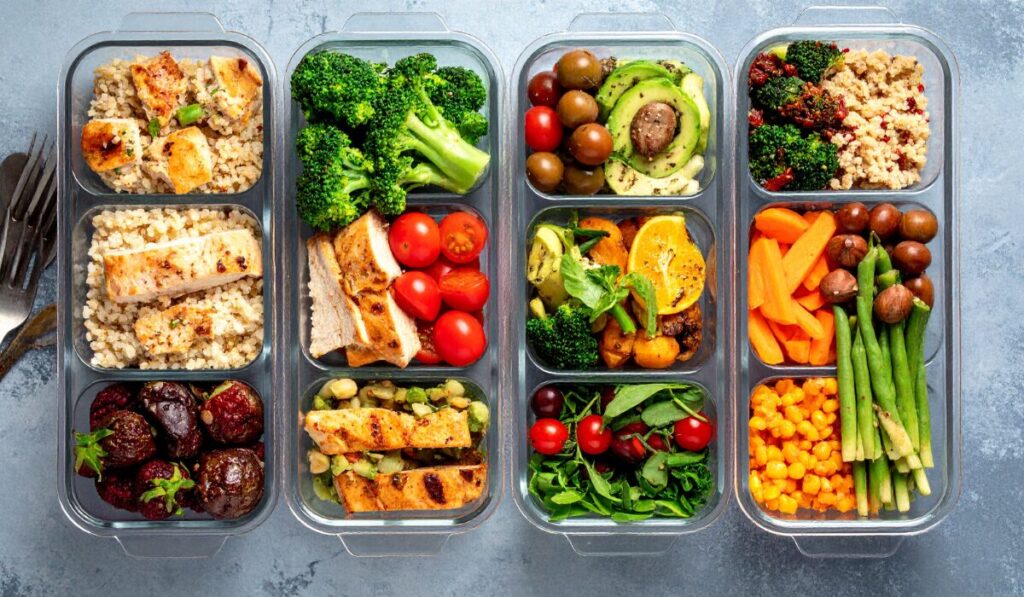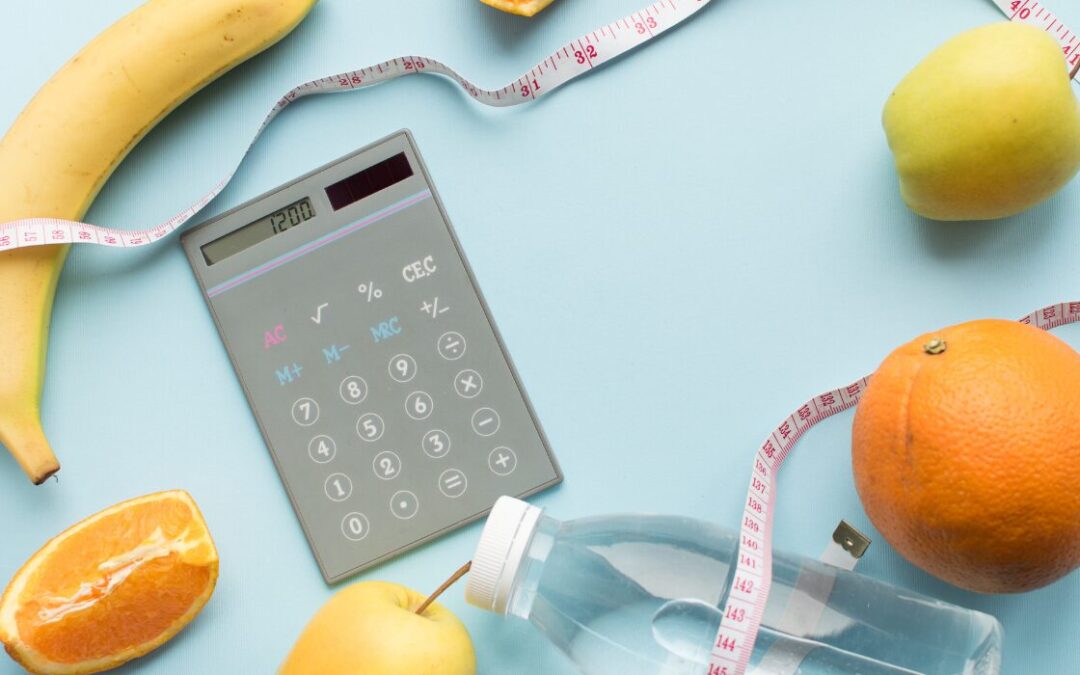When it comes to maintaining a healthy lifestyle, understanding your daily calorie intake is one of the most important steps. Eat as many carrots or apples as you want, and you will be healthy. Eating fried foods, sugary drinks, and junk food, even in little quantities, will damage your health. Whether trying to lose, gain, or simply stay healthy overall, having some kind of approximate idea of how many calories your body needs can be the determining factor. Focus more on the quality of calories vs just the quantity.
Here, in this article, we’re going to tell you what daily calorie intake is, how it’s calculated, and how your activity level, your sex, and your age influence the blend. And we’re going to break some myths and give you step-by-step advice which you can follow.
The Role of Daily Calorie Intake in Your Well-Being
Daily calorie intake refers to the number of calories one ought to consume daily in an attempt to sustain his/her current body weight and energy level. Calories are a measurement of energy that powers your body’s functions, from breathing and digestion to walking and thinking.
When you consume more calories than your body requires, your body stores the excess energy in the form of fat. When you consume fewer calories than you expend, your body burns stored fats to create energy and thus weight loss. That simplicity is the key to all fitness and health objectives.
How to Calculate Your Ideal Daily Calorie Intake
Every individual’s body is unique, and hence calorie needs are unique. The most effective way of estimating a daily calorie need is estimating Basal Metabolic Rate (BMR) and Total Daily Energy Expenditure (TDEE).
- BMR is the number of calories your body burns at rest.
- TDEE = BMR × Activity Level
Quick formula for BMR (Mifflin-St. Jeor Equation):
- For Men: BMR = 10 × weight (kg) + 6.25 × height (cm) – 5 × age (y) + 5
- For Women: BMR = 10 × weight (kg) + 6.25 × height (cm) – 5 × age (y) – 161
Then multiply BMR by an activity factor:
- Sedentary (little or no exercise): BMR × 1.2
- Lightly active (light exercise/sports 1–3 days/week): BMR × 1.375
- Moderately active (3–5 days/week): BMR × 1.55
- Very active (6–7 days/week): BMR × 1.725
- Super active (twice a day training): BMR × 1.9
Daily Calorie Intake Based on Age, Gender, and Activity Level
Here’s a general idea of how calorie needs vary based on common demographics:
| Group | Sedentary | Moderately Active | Active |
| Women (19–30) | 1,800–2,000 | 2,000–2,200 | 2,400 |
| Women (31–50) | 1,800 | 2,000 | 2,200 |
| Men (19–30) | 2,400–2,600 | 2,600–2,800 | 3,000 |
| Men (31–50) | 2,200–2,400 | 2,400–2,600 | 2,800–3,000 |
These numbers are averages and don’t consider specific health conditions, muscle mass, or metabolic rate. Still, they’re a useful starting point.
Recommended Daily Calorie Intake for Weight Loss and Muscle Gain
If you’re trying to lose weight, a good rule of thumb is to reduce your diet by 500 calories. That should create a loss of 0.5 kg (1 lb) of body weight per week, which is healthy and sustainable.
If you’re trying to bulk, you’ll require a caloric surplus—about 250–500 calories more than maintenance. The important thing there is to consume dense foods and not empty calories.
Daily Calorie Intake Chart: Quick Reference Guide

Here’s a simplified chart based on general goals:
| Goal | Daily Calorie Adjustment |
| Weight Loss | Subtract 500–750 calories |
| Maintenance | Eat based on your TDEE |
| Weight Gain (muscle) | Add 250–500 calories |
These are general estimates and may need to be adjusted over time.
Common Myths About Daily Calorie Intake You Should Stop Believing
- “Everyone should eat 2,000 calories a day.”
Not true. That’s just an average used for labelling. Individual needs vary a lot. - “Skipping meals helps you eat fewer calories.”
Skipping meals can lead to overeating later. Consistency is more important. (If you want to skip meals, skip evening dinner.) You will benefit from that the most. - “Calories from junk food are the same as healthy food.”
Technically, yes, but your body processes whole foods differently, supporting better health and digestion. Quality is more important than calories. You cannot overeat Apples, Strawberries, or Oranges. You will not gain weight with this food. You can always overeat sweets, sour food, and junk food, which are not quality foods, and you will suffer from getting obese and poor health. - “Low-calorie diets are always healthy.”
Extremely low-calorie diets can slow your metabolism and harm your health long-term.
Healthy Meal Planning to Meet Your Daily Calorie Intake Goals

Balancing meals across macronutrients (carbs, proteins, and fats) can help you hit your daily calorie intake targets while still getting all the nutrients your body needs.
A 2,000-Calorie Sample Day Could Look Like:
- Breakfast: Banana and almond oatmeal (400 cal)
- Lunch: Olive oil dressing on salad (550 cal)
- Snack: Berries and Greek yogurt (200 cal)
- Dinner: Steamed broccoli, soup & brown rice (650 cal)
- Evening Snack: Whole-grain toast with peanut butter spread (200 cal)
Using apps like Cronometer and MyFitnessPal to monitor your food intake can be a tactic that makes you more conscious of what you are putting into your body.
Daily Calorie Intake Mistakes That Could Sabotage Your Health Goals
- Omitting to include placing sauces, dressings, and drinks – They have hidden calories.
- Cutting portion sizes too conveniently – Depending on most people to eat smaller portions of food.
- Not correlating what you eat with activity or age – Your caloric requirement varies with age.
- Not paying attention to the body’s cues – Conscious eating prevents overconsumption.
Conclusion
Knowing your daily calorie intake helps you make smarter food choices and align your diet with your health goals. This is not deprivation and control—this is restraint and awareness. Start small, work hard, and govern the process. If you’re in fat loss mode or building muscle, try your best to keep it on the down-low; the proper stepping stone toward a healthier you is having an exact idea of how much your body actually needs.
FAQ’s
How do I know if I’m eating the right daily calorie intake?
If you’re average weight, your energy is good, and you’re not starved to the point you can’t bear it or stuffed to the same point, then you’re likely in the right range. Unexplained or chronic weight loss or gain can indicate that you need to play around with your intake.
Should I count calories every day?
Not quite. Tracking at first is helpful to get used to your food and portions. Then, daily balanced eating over tracking daily calories is more beneficial.
Is it bad to eat below my daily calorie intake needs?
Yes. Consuming too few calories in the long term will result in a loss of muscle mass, decelerate metabolism, and cause illness or weakness. A healthy but moderate caloric deficit for weight loss does work, but must be supplemented with proper nutrition.
Do children and teens have different daily calorie needs?
Yes. They are growing, so their bodies are increasing in size, and they require more calories to power growth, activity, and age. An active teenager may require a whole lot more than a couch potato kid. Stress healthy, healthy foods.

